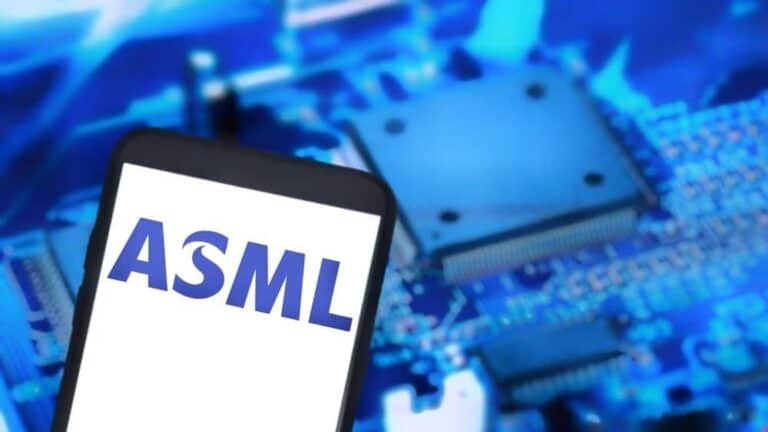American restrictions on chip equipment to China are going to be more lenient than expected. For Dutch parties such as ASML, ASMI and BE Semiconductor, it’s delivers green tickers on the stock market. But is the positivity justified?
ASML took a beating on the stock market last month after it accidentally published its quarterly figures early. Meanwhile, the shares have virtually recovered in value, and the Dutch-based company also has a positive long-term outlook. Indeed, it may realize 60 billion euros in sales by 2030. And thanks to good news from the U.S. press, the share price is up by a few additional percentage points today.
Small piece of news
Anonymous Bloomberg sources now report that China’s CXMT, which specializes in memory chips, is not going to be added to the U.S. sanctions list. This list features Huawei, among others, and the end result is that its equipment cannot be made with U.S. components or sold to the United States.
CXMT (formerly Innotron) is an old acquaintance of ASML. In 2018, CEO Zhu Yiming visited ASML for the possible purchase of the most advanced chip equipment of the time: EUV lithography machines. However, this class of chip manufacturing never made it to China due to restrictions imposed in the trade war that has since escalated.
Now that CXMT has been exempted from the sanctions list, little has changed. President Biden’s U.S. administration still plans to announce even tougher restrictions. This may happen as early as next week. Before these restrictions, U.S. policymakers reportedly negotiated intensively with their Dutch and Japanese allies. The result is a plan analysts describe to Bloomberg as being better than a worst-case scenario, implying it’s still nothing to cheer for.
ASML still needs to shift its focus
China is still the most lucrative market for ASML, representing roughly 50 percent of total sales. However, the company has already admitted that this share will drop to 20 percent by 2025. In other words, the chip company should prepare for an immense turnaround due to the additional restrictions.
On top of that, there is little prospect of change. First of all, Dutch Prime Minister Dick Schoof is actually an advocate of a tough stance on China; he has been for years. This as opposed to former Prime Minister Mark Rutte, who actually resisted the harsh export restrictions coming from America. In the United States, changing the guard from President Biden to President Trump is unlikely to cause regulatory shifts in this area. The anti-China policy initiated in Trump’s first term was simply continued by his successor. So ASML is not expected to be able to sell its most lucrative EUV machines to China in the coming years.
Also read: Mass legal claim looms over ASML after ‘deception’
